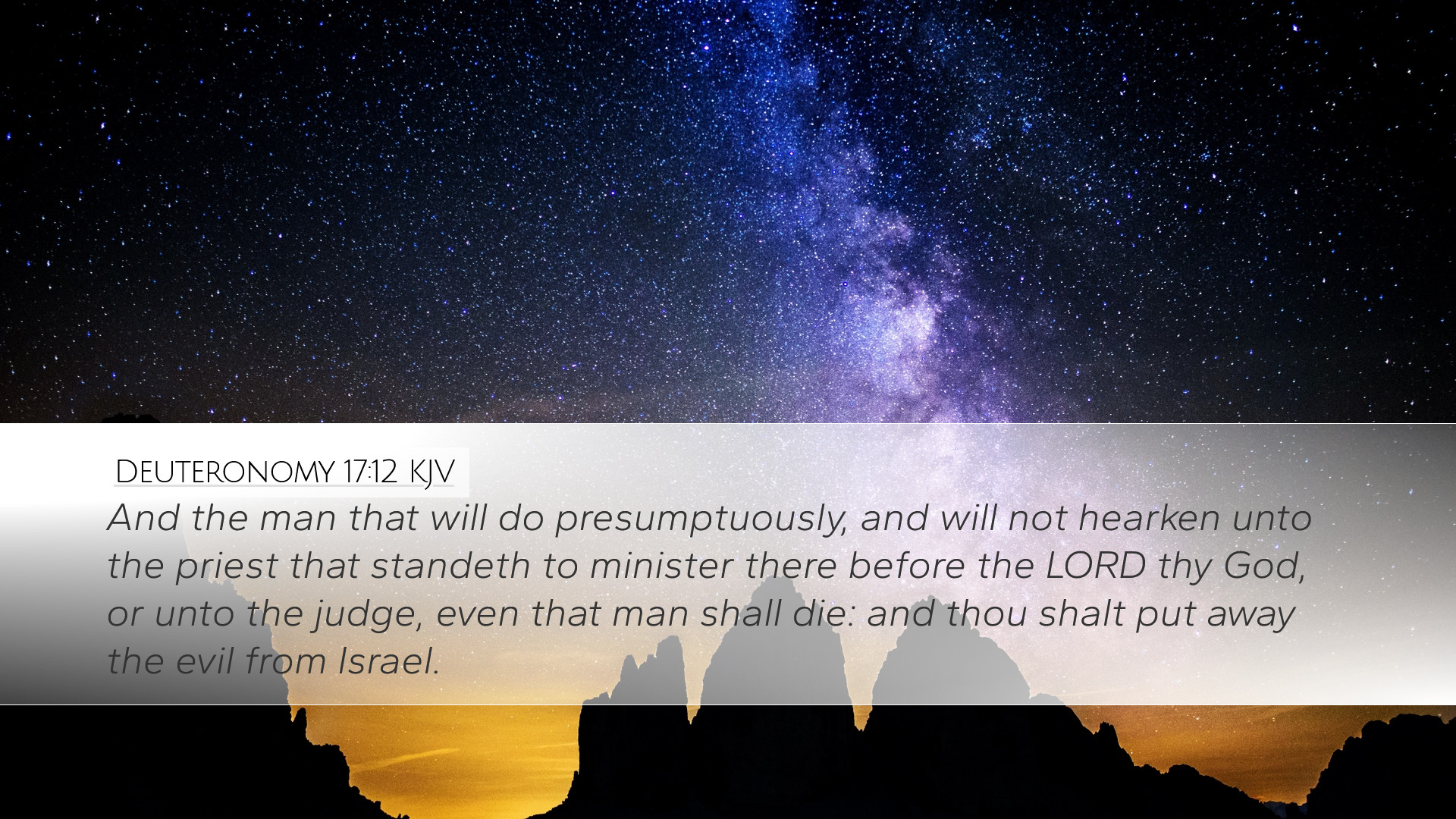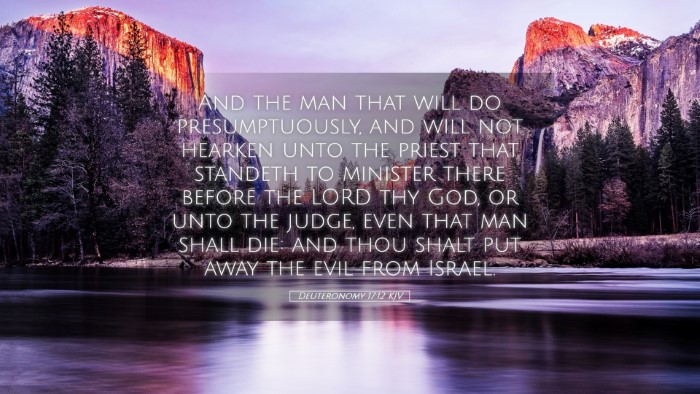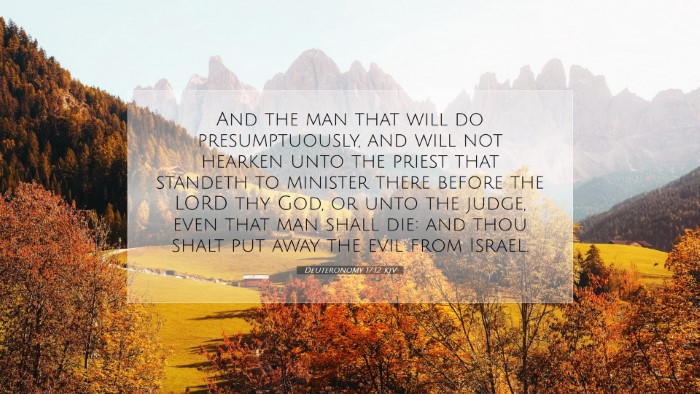Commentary on Deuteronomy 17:12
Verse: “And the man that will do presumptuously, and will not hearken unto the priest that standeth to minister there before the LORD thy God, or unto the judge, even that man shall die: and thou shalt put away the evil from Israel.”
1. Introduction
In Deuteronomy 17:12, we encounter a significant directive concerning the authority of spiritual leaders in Israelite society. This verse establishes the consequences for those who act presumptuously and refuse to listen to the ordained priest or judge. The weight of this instruction highlights the importance of obedience to divinely appointed authority as a foundational principle in the governance of Israel.
2. Contextual Background
This instruction appears within the broader context of governance in Israel. The chapters preceding this verse discuss the establishment of judges and priests, emphasizing their crucial role in maintaining justice and holiness among the people of God. The legal system is to be administered with care and solemnity, representing God’s will on earth.
3. Insights from Matthew Henry
Matthew Henry emphasizes the seriousness of defiance against divine authority. He points out the moral obligation of individuals to heed the counsel of those appointed to lead them. The word "presumptuously" reflects arrogance and a blatant disregard for God's established order. Henry notes that the death penalty for disregard is an illustration of God's intolerance for rebellion against His chosen representatives. He suggests that obedience to God’s ordained leaders is vital for the community's health and the worship of God.
4. Insights from Albert Barnes
Albert Barnes expands on the implications of this verse, proposing that it instructs not only on the civil authority but also on spiritual matters. He mentions that the priest represents not just a legal authority but serves as a mediator between God and the people. Disobedience to such leaders constitutes a direct affront to God Himself. Barnes concludes that the intent behind such a severe consequence is to promote a holy fear of God, encouraging citizens to respect the established order within the theocratic framework of Israel.
5. Insights from Adam Clarke
Adam Clarke offers a detailed exploration of the term "presumptuously," linking it to actions that defy God's will. He iterates the essential nature of the priest's role in guiding the people towards righteousness. Clarke argues that the stern corrective given in this verse serves as a deterrent against the chaos that arises from individual autonomy that disregards divine law. He notes that communal integrity and adherence to spiritual leaders are paramount in sustaining the covenant relationship with God.
6. Theological Implications
When leaders appointed by God are ignored or defied, the entire community risks spiritual and moral decay. The collective obedience to God’s appointed voices becomes a litmus test for the nation’s faithfulness to the covenant. The consequences outlined in Deuteronomy 17:12 serve as a reinforcement of the sacredness of the law and the leaders who uphold it, showing that the stability of ancient Israel depended on a genuine respect for divine order.
7. Applications for Today
Modern readers and leaders in the church must consider how this principle translates into contemporary contexts. The concept of authority, whether within a church community or broader society, carries similar responsibilities and challenges. The requirement to listen to godly advisors and leaders remains relevant in spiritual matters, and the consequences of turning away from such guidance can lead to significant ramifications in personal and communal faith journeys.
8. Conclusion
Deuteronomy 17:12 serves as a stark reminder of the need for obedience to divine authority. It challenge individuals and communities to reflect on their approach to spiritual leadership and the severe consequences of casting it aside. As Matthew Henry, Albert Barnes, and Adam Clarke elucidate, this verse invites a deeper understanding of the importance of godly order, the role of authorities, and the gravity of maintaining a faithful relationship with God through His appointed representatives.


